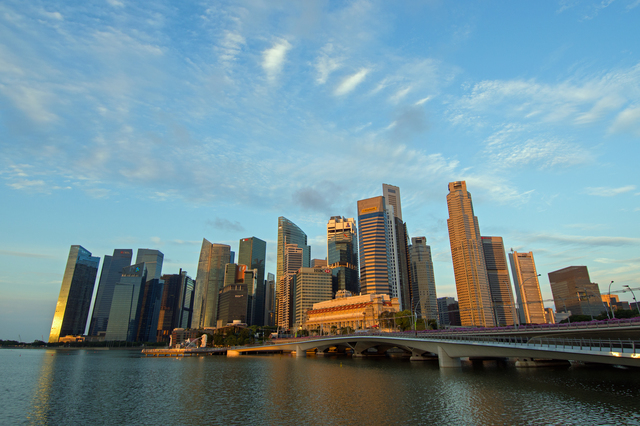“Asian Review 023” ― Singapore part 9
Strategic economic growth in the political stability
Mr. Lee Kuan Yew, a rare leader who built up the nation from scratch and nurtured the most richness in Southeast Asia, responded to an interview by the “Nikkei Business” in 1999 and stated, “I think the reason why the Japanese economy was stagnant since the collapse of the bubble economy is that Japan was not fully open to the international market. Japan became a highly productive country in a certain field such as textile products, petrochemical products, ship, steel, automobile, electronics and so on, and gained a large share, but at the same time, it held excess manufacturing equipment in the country. Because the domestic market was protected and the relocating of resources was not adequately conducted according to the signal from the international market. In the age of catch-up, the government-led Japanese model was effective, but after catching up, the model should have been transformed to fit the international market.”
He also commented on the fact that Singapore made English as an official language in addition to Chinese: “Thanks to the invention of the Internet, the advantage of the American-led global standard is accelerating. As such, it was fortunate that Singapore also had a superiority because most of the people are fluent in English.” He advised that it is also important for Japanese to use English as the second official language, making all junior high school students speak English fluently.
In recent years, we are recognizing that China is increasing their presence in the world through policies such as One Belt One Road, Singaporeans may have larger opportunities because they can communicate with the Chinese language.
After Mr. Lee passed away in 2015, media in the world issued special articles on him. Among those, according to the article by the National Public Radio: “Mr. Lee insisted that the one-party dictatorship is more efficient and more adapted to the East Asian society than western style democracy. He claimed that the East Asian society is family oriented, educational-oriented and collectivistic, and he called it “Asian values”.
Returning to the interview with Nikkei Business, Mr. Lee said, “Confucianism is shared by China, Japan, Singapore, Korea, and etc., and the importance of its value has not diminished. The five human relations such as the ruler and the ruler, husband and wife, father and son, brothers and sisters, and friends, is a vital, indispensable element.”
In Asia, how many countries have established real democracy? Although there might be opinions both for and against, Singapore’s “development dictatorship”, even though it has a history of suppressing opposition forces, it may have been the best way for a small country to become an advanced country in such short period. In fact, they have been experiencing strategic economic growth in the political stability.
We have explored Singapore in the past nine issues, and I would like to conclude this series with the following sentence: Japan may be regarded as a “big country” from Singapore’s perspective, but we still have many things to learn from Singapore, don’t we?
